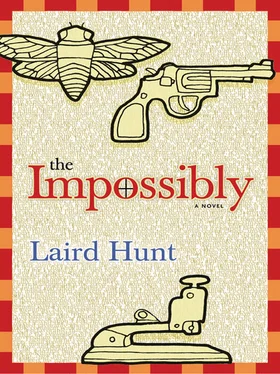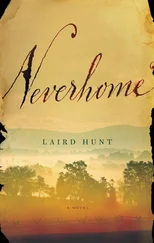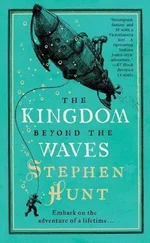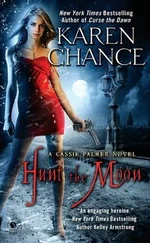I stood. In the mirror hanging behind the couch on the wall I saw a row of brightly colored computers, a mummified crocodile, a shotgun, a row of turnips, a display of ray guns.
What do you see? I said.
Two galaxies in the constellation Canis Major colliding, she said.
9) She also said that the visions or hallucinations I had been having could be both useful and dangerous — useful because any accurate edge on upcoming particularities was helpful; dangerous because as often as not what felt like an accurate edge was apocryphal or too vague to do anything but fuel confusion.
So how can I tell the difference?
You can’t. At least not until afterwards. Maybe not even then.
Well, that’s just great. Doesn’t the literature you mentioned have anything to say about it?
She nodded. It says what I just said.
Can you add anything — like maybe from your own experience?
I’m an optimist, she said.
Meaning what?
She shrugged. Meaning I think it’s all going to work out. Some way or other.
I took a sip of scotch and thought about it. I didn’t know what to think.
At any rate, before I knew it I was no longer floating up above the buildings and warehouses, but walking back to the firm with John and discussing all manner of first-rate subjects.
John was very interested, he told me as we walked along, in the subject of big cats in general, and of cheetahs specifically. He had been doing some research lately and had learned that cheetahs, while well deserving of the title “fastest land animal,” were at a considerable disadvantage when it came to weight and strength, and often lost prey. Lions, who were in many ways the scourge of the jungle, and also of the savannah, were always delighted to come across a cheetah working over a fresh kill, as there was nothing easier for a lion than to send a cheetah packing. John had never yet seen either a lion or a cheetah, but he had seen a jackal once. The little dog, as John described it, had snapped viciously at a stick John was carrying before running away.
Jackals live in dens, John told me.
Like badgers, I said.
Yeah, just like badgers, Sport.
Anyway, as you can imagine, I might well in the face of this benign but interesting conversation have come around to being convinced of the apocryphal nature of my surreptitious tailing, had not one subsequent remark struck a jarring note. After we had concluded our interaction regarding cats, jackals, and more or less related categories of animals, John said, that was some hat that guy was wearing.
What hat? I said.
Never mind, he said.
That was all there was to it. But little by little, as I sat in my office later, after my leave of absence had started, I began to consider the events that had occurred while part of me had waited for John by the warehouse. One of the things I remembered was that, unlike earlier, the individual with the cracked tooth had been wearing an orange hat, a hat that John had remarked on as they stood bantering a moment before exchanging the bag.
My secretary buzzed. I buzzed back. The first of the appointments he had set up for me came in.
This was Ms. Krumpacher — a very pleasant and intelligent individual who had, you will remember, information relevant to the case. When she had gone, Mr. Jones came. Then Ms. Green.
Ms. Green, I was somewhat surprised to note, was more or less the woman I had shared scotch with the previous evening. We had a nice chat. Then she left. After I had seen her out, I returned to my desk, hit the intercom, told my secretary to hold all calls and to tell any visitors I wasn’t in.
Sure, Boss, said my secretary.
Good, I said. Incidentally, how have you been?
Not so bad, Boss, he said. A little lonely, but not so bad.
We all get lonely, I said.
Sure, Boss. Will that be all?
Yes. Although, frankly, I’d rather you didn’t call me Boss.
What would you like me to call you?
Sir.
I won’t call you Sir.
Then don’t call me anything.
Having concluded that exchange, I leaned back in my chair and set my mind to the task of digesting the information I had just received from Ms. Krumpacher, Mr. Jones, and Ms. Green. Despite my best efforts at concentrating, however, I found that my thoughts kept returning to my secretary’s remark about loneliness. No doubt it was this remark that brought to my mind images of all those days I spent alone as a teenager in the large farmhouse or out in the surrounding fields. I would lie in bed in the dark and look at the rectangle of light the service lamp projected onto the ceiling above my bed. It seemed to me, as I lay there looking at it, that the world had at last been reduced, that its substance had been siphoned away, that all that was left was this pale rectangle, which, in its turn, would surely fade. In the fields, in the early morning, I would walk and hum and throw stones and think, there where they have fallen, that is where I will lie. And much else along these lines, so that after a certain interval I found myself moved to rise, to go into the front room and join my secretary, to sit, as it were, in company with him. This laudable ambition notwithstanding, I got no farther than the handle of the door to the front room. My secretary wasn’t alone. He was conversing, in a suspicious whisper, with the aforementioned individual with the cracked tooth.
Yes, he’s in there, and feeling very lonely, my secretary said.
So maybe I’ll go in there and give him some company, the individual with the cracked tooth said. And when he stood (the door was slightly ajar) I could see he was holding a gun.
It occurred to me, for a moment, that I was simply hallucinating again. After all, I had more or less witnessed this scene several days previously. Something, though, told me it might not be entirely illogical to attempt to play it safe. So I did what Ms. Green had lately, i.e., a few minutes before, told me I could — I became barely visible.
Or thought I did.
It worked for a time.
The individual, wearing his orange hat, entered quickly, gun drawn, a smile on his face, finger on the trigger, a burst capillary in his left eye. On registering that I was not at my desk, he did a curious dance, a kind of wheel and pivot movement, executed quite deftly, which he repeated three times. When he was satisfied that I wasn’t standing out of the range of his peripheral vision, he took two quick steps over to my desk, simultaneously looking under it and pushing the curtains aside.
Where are you? he said.
He said it in a very casual, almost friendly way, which almost caused me to become visible again, or at least to attempt to answer. For a moment though, and perhaps this saved me, I was drawn, all but irresistibly, away from this line of hypothetical inertia, into a moment’s reverie, in which I was hiding in a foot locker in an enormous dark room — a small dark set off from a larger dark and my own dark set off from the whole — and someone holding a large knife and a flashlight was looking for me.
Where are you? she said, in a very casual, almost friendly way, so that I almost, as she stood outside the locker, answered, or began to breathe again.
He was standing right beside me. If I could have felt anything (I could see, hear, smell, and taste but not feel) I would have felt his breath on the lobe of my left ear.
This is where you are, he said. He spoke now in a hoarse half whisper, so that, with the receptive capacities of my remaining senses much reduced, it was difficult to hear him.
Yes, this is where you are, he said. I wonder what you’ve learned so far. I wonder if you have learned anything at all.
Very little, I thought, though I have learned some things. I have learned, for example, I thought, from my interview with Ms. Krumpacher, that murder was in fact done, most certainly. Great quantities of blood and tissue and several small pieces of bone had been found.
Читать дальше










![Беар Гриллс - The Hunt [=The Devil's Sanctuary]](/books/428447/bear-grills-the-hunt-the-devil-s-sanctuary-thumb.webp)

